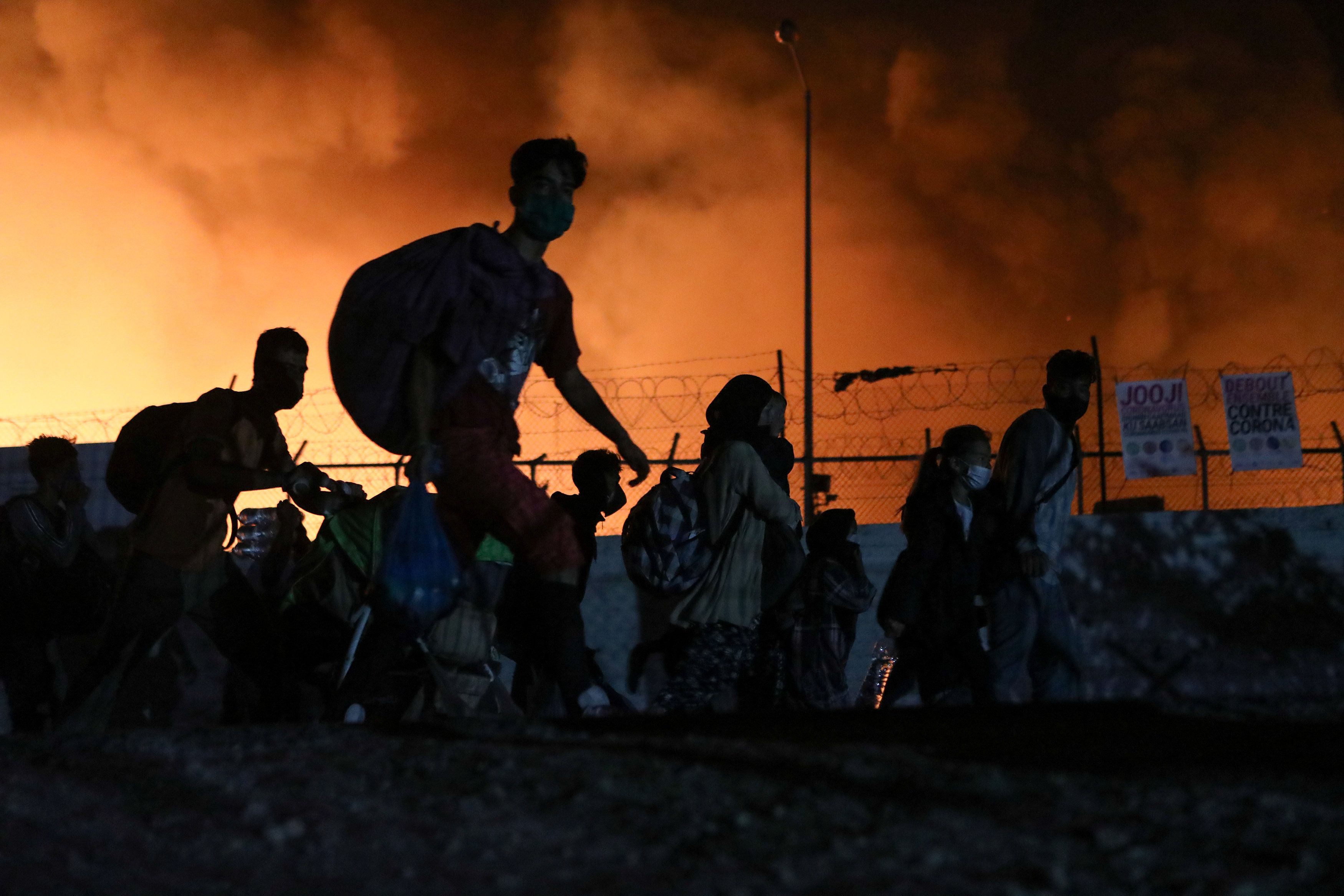News
September 09, 2020
13,000: A huge fire destroyed Europe's largest refugee camp on the Greek island of Lesbos, leaving roughly 13,000 people without any shelter. While the cause of the blaze is still unknown, human rights groups have long complained that overcrowded migrant camps would one day prove catastrophic on the Greek island.
51: South Africa's GDP contracted by an annualized 51 percent in the second quarter of this year, the worst decline since 1960. Africa's most industrialized economy — which has been crippled by the pandemic-related lockdown — has now been in recession for a full year, the first time that's happened since 1992.
3,000: The Pentagon announced on Wednesday that it would reduce the number of US troops in Iraq from 5,200 to 3,000 this month. More than 17 years after the US-led invasion as part of the broader War On Terror, American soldiers are still in Iraq, but now they are mostly fighting the Islamic State.
1: US-Swedish pharmaceutical company AstraZeneca has paused its clinical trials of the COVID-19 vaccine it is co-developing with the UK's Oxford University after one of its volunteers developed neurological symptoms. This vaccine is one of eight currently in Phase III clinical trials in the global race to develop a vaccine against the coronavirus.More For You
World Central Kitchen staff hand out free soup in a neighbourhood that experiences electricity and heating outages following recent Russian attacks on Ukraine’s civilian infrastructure during subzero temperatures in Kyiv, Ukraine February 3, 2026.
REUTERS/Thomas Peter
1,170: The number of high-rise buildings in Kyiv that were left without heating following a barrage of Russian attacks last night on Ukraine’s capital and its energy facilities, per Kyiv Mayor Vitali Klitschko.
Most Popular
What We’re Watching: US critical minerals summit, Rafah crossing reopens, Border violence in Pakistan
Feb 02, 2026
U.S. President Donald Trump and Japanese Prime Minister Sanae Takaichi hold up signed documents regarding securing the supply of critical minerals and rare earths, at a bilateral meeting at Akasaka Palace in Tokyo, Japan, October 28, 2025.
REUTERS/Evelyn Hockstein
Representatives from the European Union, United Kingdom, Japan, and others will meet in Washington this week to discuss a strategic alliance on critical minerals.
Hard numbers: Large protests in Czechia, UAE-linked firm has large stake in the president’s company, & More
Feb 02, 2026
People take part in a rally in support of Czech President Petr Pavel, organised by Million Moments for Democracy group in reaction to dispute between President Pavel and Czech Foreign Minister and Motorists chair Petr Macinka, in Prague, Czech Republic, February 1, 2026.
REUTERS/Eva Korinkova
80,000: The number of people estimated to be in the streets of Czechia on Sunday to show their support for President Petr Pavel after he blocked the nomination of an environmental minister who performed the Nazi salute and posted Nazi memorabilia.
US President Donald Trump and musician Nicki Minaj hold hands onstage at the US Treasury Department's Trump Accounts Summit, in Washington, D.C., USA, on January 28, 2026.
REUTERS/Kevin Lamarque
The US has started handing $1,000 to the bank accounts of newborn babies. But can policies like this one help boost sagging birthrates in advanced democracies?
© 2025 GZERO Media. All Rights Reserved | A Eurasia Group media company.
